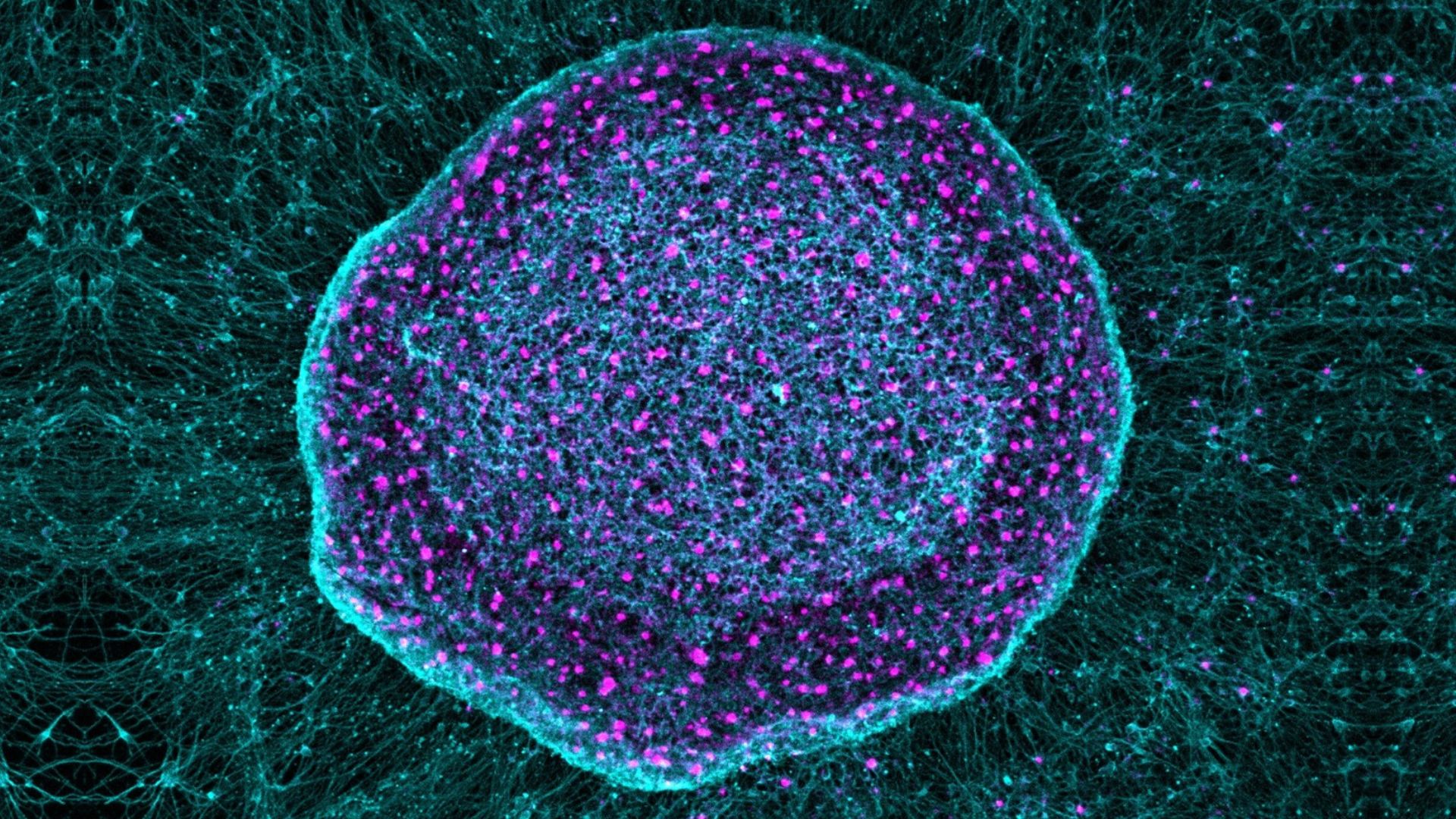Controversial Gene-Depression Link Confirmed in New Study

The 2003 discovery of a gene variant that seems to predispose people to depression when stressed out created great excitement — and a flood of research — in the field of psychiatry. In 2009, however, an analysis of research on the gene threw cold water on that enthusiasm by finding no consistent link between the gene variant and depression.
Now, a new analysis restores the gene to its former reputation. The study is the most complete analysis of the research to date, said lead researcher Srijan Sen, a psychiatrist at the University of Michigan Health System. Sen and his colleagues analyzed 54 studies on the link between depression and the gene, called 5-HTTLPR.
"We found pretty strong evidence that there's really an effect there," Sen told LiveScience.
A gene variant for depression?
The gene 5-HTTLPR was first discovered in the mid-1990s, but it gained real fame in 2003 when researchers discovered that a short version of the gene seemed to make people less resilient to stress and thus more prone to depression. A longer version of the gene (meaning it was made up of more base pairs, or two nucleotide molecules that sit opposite one another on complementary strands of DNA), on the other hand, seemed to boost resiliency. The gene codes for a protein that picks up the neurotransmitter serotonin (a chemical known to be involved in depression) from synapses and returns it to neurons to be re-used in brain signaling.
Dozens of studies followed, some confirming the link and some failing to find a connection. In 2009, a second group of researchers analyzed 14 studies that attempted to replicate the original gene-depression finding. The analysis, published in the Journal of the American Medical Association (JAMA), showed no evidence of a connection.
But the 14 studies analyzed were a limited, biased sample, Sen said. He and his colleagues used a different statistical technique to analyze 54 studies on the link between the gene variant, stress and depression — almost every study published on the topic up until 2009.
Get the world’s most fascinating discoveries delivered straight to your inbox.
When all of the studies were taken into account, Sen said, "the major finding is that it looks like there is a small but significant interaction between the serotonin transporter gene and stress and depression. The people with the short allele are more vulnerable to stress." [Read: 7 Ways Depression Differs in Men and Women]
The researchers broke the data down further and found that studies that were more comprehensive in gathering data — interviewing participants face-to-face rather than via mail-in surveys, for example — more clearly showed the gene-depression relationship. The type of stress also seemed to matter. People with the short gene who experienced abuse or early childhood maltreatment were more prone to depression than people with the short gene who were exposed to later or shorter-term stressors.
"It really brings people forward and tells people something new as well as just summing all the previous studies together," Rudolf Uher, a psychiatrist at Kings College London who was not involved in either analysis, told LiveScience.
Genes and environment
"If there is one paper's conclusion that can be trusted, this is it," said Terrie Moffitt, a Duke University professor of psychology and neuroscience and one of the original discoverers of the link between 5-HTTLPR and depression.
"[The new paper] shows the better the study's design, the stronger the effect size," Moffitt wrote in an e-mail to LiveScience. "So the mystery of the inconsistent findings has been solved!"
Sen said he hopes the study will "close the chapter" on the 5-HTTLPR controversy. It's likely that some people will take issue with the new study's methods, Uher said, because the researchers had to compare many studies with vastly different data sets. However, Uher said, the researchers are on firm ground with their claim that the previous analysis' negative finding was due to exclusion of too many studies.
When Sen and his colleagues tried their method on just the 14 studies analyzed in the 2009 paper, they, too, got a negative result. That suggests that it was a skewed sample, not bad analytical methods, that accounts for the opposite results in the two studies. (The authors of the 2009 analysis could not be reached for comment.)
With the connection between 5-HTTLPR, stress and depression reconfirmed, study should turn to the mechanisms by which stress can alter the activity of the gene, said Joan Kaufman, a psychiatrist at Yale University who was not involved in either study.
"We don't know how various aspects of the environment are interacting with this gene to create the behavioral change," Kaufman said.
Sen emphasized that the gene-environment interaction (or GxE, in the parlance of psychiatry researchers) for 5-HTTLPR is only part of the puzzle of depression, and there are likely to be other genes that can tell researchers more about how the disorder develops.
"Hopefully, we can sort of move on and look more broadly at the genes that are involved in depression and stress response," Sen said.
Uher echoed Sen's call for turning the page.
"Now we should stop arguing about this particular GxE and move on," he said. "There is so much more to explore."
You can follow LiveScience Senior Writer Stephanie Pappas on Twitter @sipappas.

Stephanie Pappas is a contributing writer for Live Science, covering topics ranging from geoscience to archaeology to the human brain and behavior. She was previously a senior writer for Live Science but is now a freelancer based in Denver, Colorado, and regularly contributes to Scientific American and The Monitor, the monthly magazine of the American Psychological Association. Stephanie received a bachelor's degree in psychology from the University of South Carolina and a graduate certificate in science communication from the University of California, Santa Cruz.
 Live Science Plus
Live Science Plus





